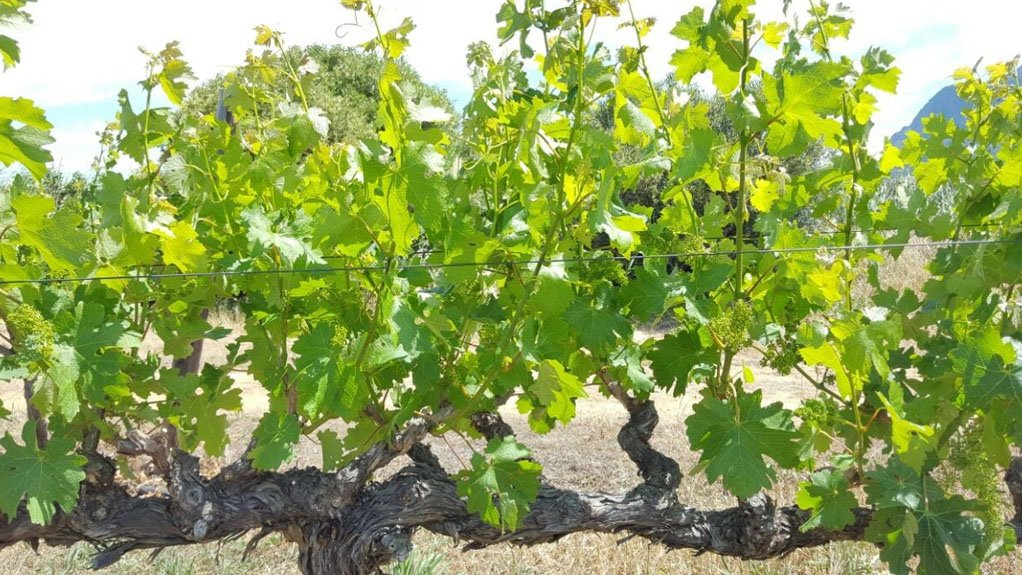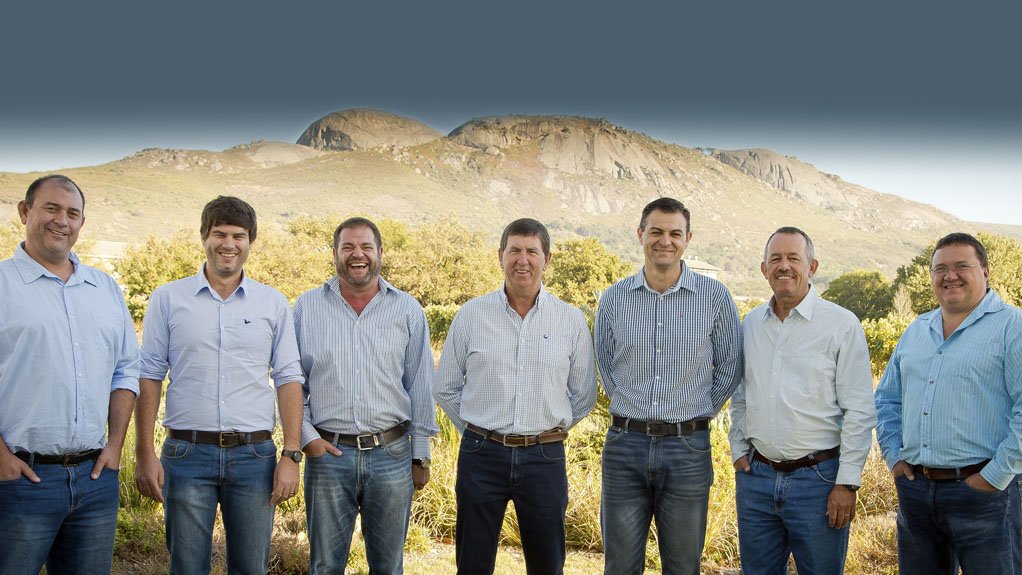Although innovative production practices and a diversified geographic production area helped to buffer the effect of the drought on the 2017 harvest, wine industry body VinPro explains that insufficient rainfall in the winter months will undoubtedly have an effect on vine functionality and yield going forward.
VinPro notes that, as a result of the drought, the Western Cape has received 30% less rainfall than the amount needed at this stage, with dam levels currently at 35%, compared with 62% last year.
With 2018 approaching, VinPro points out that the 2018 harvest dependson a number of factors, including sufficient irrigation in the post-harvest period and during the new growing season in the run-up to the next harvest, which starts after winter, usually in September.
“Any stress on vines during the season can lead to a smaller berry or grape size and, although this bodes well for quality, the lower yield may have a negative effect on producer income and sustainability,” VinPro explains.
VinPro MD Rico Basson points out that a decline of 1% in the 2018 harvest translates into a R50-million decline in income at the producers’ farm gates. Owing to this, VinPro realises the urgency of the issue and the serious effect this will have on its members.
“We would like to urge wine producers to adopt new expanded technologies and practices and take advantage of VinPro’s expertise and services in this regard.”
These expertise and services includes long-term farm and cultivar planning, establishment advice – such as the choice of cultivar, clone, rootstock, plant spacing, trellis and irrigation systems – vineyard management practices, as well as trellis and vine development methods.
“We acknowledge that the majority of our producers already adhere to strict water management. Many producers have made a lot of adjustments towards efficiency and incorporated innovative new ideas to store, recycle and save water,” Basson notes, while encouraging the sharing of water recycling and savings initiatives with the industry body.
However, he notes that, in the short-term, producers need to carefully manage water loss, owing to leaking dams and pipes, as well as focus on irrigation technology and techniques.
“The starting point for any well-executed irrigation scheduling system is reliable soil moisture measurement,” says VinPro consultation services manager Francois Viljoen, adding that the level of soil water retention largely depends on good soil preparation practices.
Cover crops should also be planted after careful consideration, as these ensure good water absorption and better water retention when the rainy season starts.
Alternative Cultivars
VinPro affiliate Vititec CEO Nico Spreeth explains that, in the longer term, producers will have to look at high- quality, drought-resistant vines that produce more flavour, acidity and intensity, but have lower water needs.
“These include new clones of Grenache and cultivars such as Assyrtiko, Verdelho, Chenin Blanc, Vermentino, Aglianico, Cabernet Sauvignon and Touriga Nacional, which are suited to South Africa’s growing conditions, such as growing terroir-like soil and temperatures, as well as changing climate.”
Spreeth adds that industry is aligning its research activities to address these objectives.
Further, VinPro takes part in various discussions with industry and government stakeholders on effective drought management to compile an effective communication strategy for the Western Cape agriculture industry.
Short and medium-term plans are also being developed to manage the situation, including the development of scenarios modelling the financial implications of the current situation, VinPro concludes.
Edited by: Zandile Mavuso
Creamer Media Senior Deputy Editor: Features
EMAIL THIS ARTICLE SAVE THIS ARTICLE
ARTICLE ENQUIRY
To subscribe email subscriptions@creamermedia.co.za or click here
To advertise email advertising@creamermedia.co.za or click here















